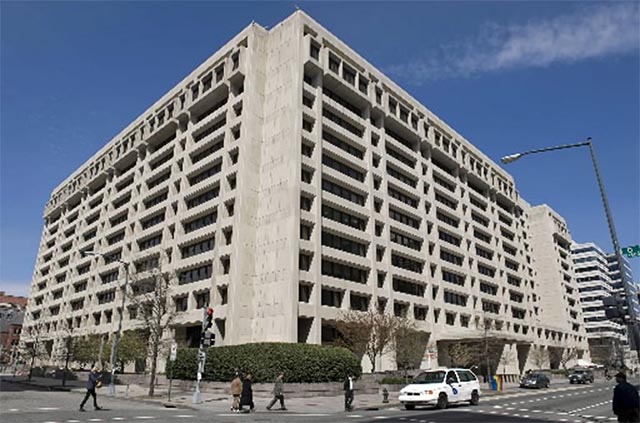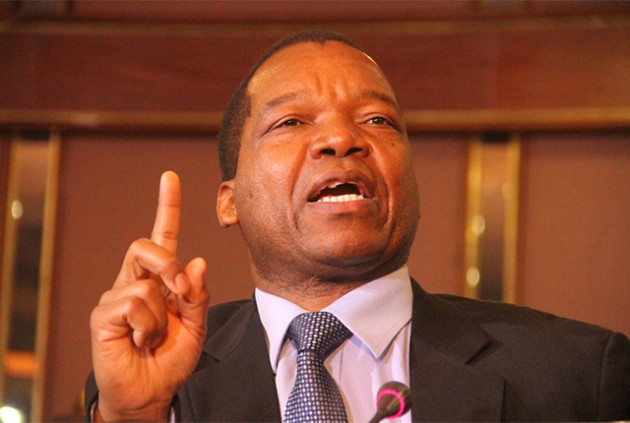‘Arrears clearance will reduce country risk’


RBZ Governor Dr Mangudya
Zimbabwe’s high country risk, which has seen it attract expensive debt, could be significantly reduced if it clears its arrears with the international institutions, the Reserve Bank of Zimbabwe has said.
Last year, Zimbabwe, which has not received new credit lines from global lenders for close to two decades, made proposals to clear its $1,8 billion arrears to unlock fresh capital.
According to the arrears clearance plan, Zimbabwe will repay International Monetary Fund arrears amounting to $120 million using Zimbabwe’s SDR resources at the fund.
On the World Bank Group balances, repayment of International Bank for Reconstruction and Development arrears amounting to $896 million will be done using a term facility syndicated by the Afreximbank and Lazard Freres, while repayment of the International Development Association and African Development Bank arrears of $260 million and $601 million will be done through a bridging facility from Afreximbank to be refinanced from a future IDA development policy operation and AfDB’s Transitional Support Facility.
The plan also includes the country’s intention to approach the Paris Club after arrears clearance.
The arrears clearance plan, which the preferred creditors approved, was proposed after the country successfully completed the IMF’s Staff Monitored Programme under which various targets on management of the economy and Government finances were set.
However, recent media reports indicated that the arrears clearance plan was facing resistance from some individuals and groups keen on sabotaging it for political expedience. Last Thursday, RBZ governor Dr John Mangudya castigated individuals and groups bent on sabotaging the re-engagement process and debt clearance plan.
“Being the chairman of the external arrears clearance and re-engagement process, we are getting concerned that there are some people in this economy who do not want us to pay these arrears. I am not sure why,” he said.
“Sometimes I find it a bit difficult that we are being pulled backwards, not by the IMF, World Bank and AfDB, but by Zimbabweans. If it is being smart, colleagues I beg to differ. We are here to help Zimbabwe. In the rural areas people are suffering, in the towns people are suffering. Why don’t you have a heart for the people?” he asked.
And, a concerned Dr Mangudya gave credence to those reports, highlighting that sabotaging the plan would only spell doom for the country which was in dire need of fresh credit lines. Zimbabwe is aiming to pay its arrears by December 31 this year. Well-placed sources told The Herald Business that the Zimbabwean delegation shall be meeting with the World Bank, IMF and AfDB during the sidelines of the annual meetings to be held in Washington from October 7-9.
This comes as IMF’s director of Communication Gerry Rice said there was need to meet (with Zimbabwean authorities), discuss and approve the normalisation of relations with Zimbabwe, and only after that could other things happen.
Mr Rice emphasised: “But again, there is no financing programme under discussion with Zimbabwe at the moment. Indeed the authorities have announced a plan to clear the arrears. Once they are cleared, our board would need to discuss that.”
Labelling detractors of the plan unpatriotic, Dr Mangudya said it was crucial not to let petty differences interfere with work being done to revive the Zimbabwean economy. He said Zimbabwe could access international funding, but that depended on successful implementation of reform strategies being pursued.
“We need to be very careful about the clearance of arrears. We are not doing it for (Dr) Mangudya or for the Government. It is being done for the people of Zimbabwe,” he said
Dr Mangudya said the arrears are now being charged default interest and if they are not cleared within the next five years, the country would not be able to service them.
“It will be suicidal not to pay the arrears, people are suffering and by not paying we will only increase their misery,” he said.
He added; “Let us put our heads together, this economy is ours together. We all belong here, if the economy is burning we all burn together. It is suicidal not to pay the arrears, because they will continue to accumulate, therefore, we are not being clever by self harming ourselves or is it good human rights to deny Zimbabweans the chance to re-engage so as to improve people’s lives.” — Business Editor/Wires.











Comments